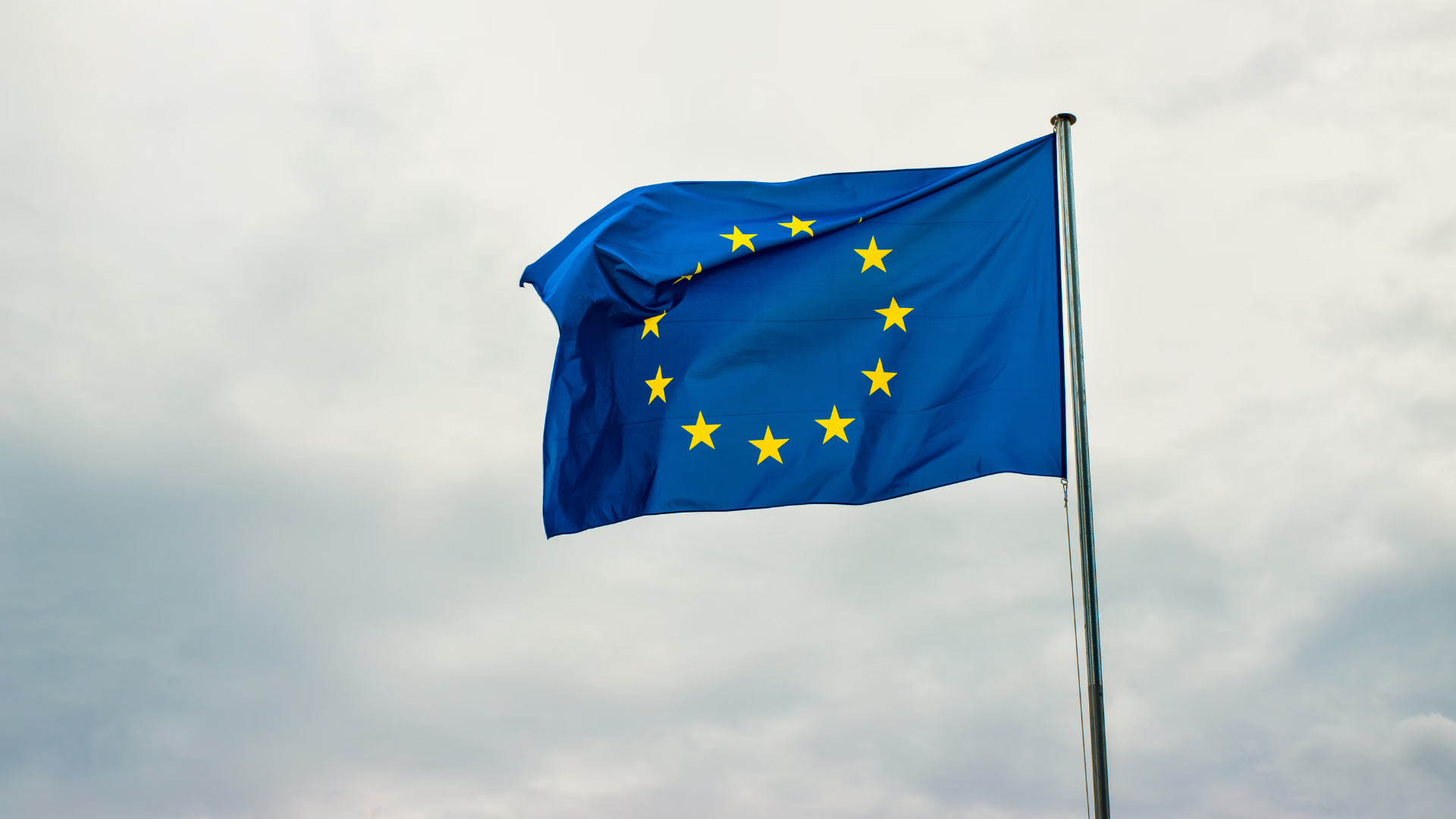In recent years, Europe’s fashion industry has been hit with new sustainability regulations designed to transform how brands operate—from responsible sourcing to end-of-life management. But for many small and medium-sized enterprises (SMEs), meeting these regulations can feel overwhelming, especially without the infrastructure that larger corporations enjoy.
So, the question remains: How can emerging brands remain compliant while continuing to scale?
Keep reading to uncover the regulatory landscape shaping fashion's future and learn how World Collective is bridging this gap, making sustainable practices accessible to all brands.
Key EU Regulations Impacting Fashion
-
The EU Strategy for Sustainable and Circular Textiles
Launched in 2022, this strategy outlines measures to make textiles more durable, reusable, and recyclable. It tackles fast fashion by promoting ecodesign and the ban on the destruction of unsold goods. For instance, brands will soon need to ensure that unsold clothing is either reused or recycled instead of incinerated, reducing waste and emissions. -
Extended Producer Responsibility (EPR)
A key element of the Waste Framework Directive, EPR obliges fashion brands to take responsibility for the entire lifecycle of their products, from design to disposal. By 2025, brands will need to implement systems that ensure their products are collected, sorted, and recycled at the end of life, preventing textile waste from ending up in landfills. -
Digital Product Passport (DPP)
Another major development is the forthcoming Digital Product Passport, set to be mandatory by 2030. The DPP will require all fashion products sold in the EU to carry detailed information about their origins, material composition, repairability, and recyclability. This passport is designed to boost transparency and empower consumers to make informed choices, pushing brands to prioritize sustainability and traceability. -
Corporate Sustainability Reporting Directive (CSRD)
Beginning in 2024, the CSRD will require large companies, and eventually small- and medium-sized enterprises (SMEs), to publicly disclose detailed sustainability reports. These reports will cover environmental, social, and governance (ESG) factors, including how a company’s activities impact the environment and how they are mitigating these effects. Fashion brands must now consider how to transparently report their efforts to reduce carbon emissions and improve supply chain conditions.
The Fashion CEO Agenda
The Fashion CEO Agenda, created by the Global Fashion Agenda (GFA), serves as a framework for fashion brands to align with sustainability goals and address key issues within their operations. The agenda highlights five priorities:
-
Respectful and Secure Work Environments: Advocating for human rights and fair working conditions across the supply chain.
-
Better Wage Systems: Pushing for living wages and wage transparency.
-
Resource Stewardship: Ensuring efficient use of resources, focusing on water, energy, and raw materials.
-
Smart Material Choices: Prioritizing sustainable materials, including organic, regenerative, and recycled fibers.
-
Circular Systems: Implementing practices that promote reuse, recycling, and reduced waste throughout the lifecycle of products.
These priorities not only help brands future-proof their operations but also encourage innovation in design, production, and distribution, with the ultimate goal of creating a net-positive fashion industry.
Introducing the GFA Policy Matrix
The GFA Policy Matrix acts as a guide for brands looking to stay informed on policy developments across the EU.
It organizes and tracks relevant regulations, providing insight into what’s in force, under revision, or upcoming. The matrix is a dynamic resource for stakeholders to understand the regulatory landscape and stay compliant while pursuing sustainability goals. By aligning with the Fashion CEO Agenda and understanding the matrix, fashion brands can navigate the complex world of EU regulations and stay ahead of legal requirements.
The Challenge for SMEs: Balancing Compliance with Scalability
For small and emerging brands, aligning with these stringent standards can seem daunting. Unlike established corporations with resources dedicated to sustainability, smaller businesses often lack the funding, manpower, and infrastructure needed to meet these evolving demands. Additionally, SMEs face steep costs associated with sourcing sustainable materials, implementing traceability, and adjusting supply chains to avoid compliance risks.
Key Obstacles for Can SMEs Include:
-
Financial Strain - Sustainable materials often come at a higher cost, which small brands may struggle to absorb. Implementing systems to ensure traceability is also costly and time-intensive.
-
Limited Access to Suppliers - Finding suppliers who meet regulatory standards, particularly for small-batch orders, is often challenging.
-
Time and Expertise Constraints - Staying updated with regulatory requirements demands a level of expertise and time that SMEs might not have.
This balancing act—meeting compliance requirements while striving to grow—is where World Collective can provide a lifeline for these brands.
How World Collective Bridges the Gap
At World Collective, our mission is to support brands of all sizes in aligning with sustainability regulations through our innovative B2B global sourcing platform. With a full range of certified sustainable materials and a transparent, tech-driven platform, we make sustainable sourcing accessible for SMEs.
World Collective's Benefits:
-
Curated, Certified Suppliers - Every supplier on our platform has been carefully vetted for compliance with environmental standards, ensuring quality and ethical sourcing.
-
Ease of Access - SMEs can purchase sustainable materials without minimum order requirements, making it easier for brands of all sizes to access certified textiles without the financial commitment of bulk buying.
-
Transparency and Traceability - Bbrands can track materials through every stage of the supply chain, meeting requirements set by initiatives like the Digital Product Passport.
Through World Collective, brands can source, verify, and build sustainable products that are compliant with EU standards without the prohibitive costs or logistical headaches typically involved in sustainable sourcing.
The Path Forward: Positioning SMEs for the Future of Fashion
As sustainability demands increase, it’s clear that the traditional model isn’t equipped to support emerging brands in this new landscape. Regulations are expected to grow stricter, and for SMEs, proactive alignment with these changes will be essential for both survival and success. This shifting landscape calls for a blend of adaptability, transparency, and innovative sourcing—a blend that World Collective is proud to offer.
Through World Collective, SMEs gain access to certified, eco-conscious materials that not only comply with current regulations but also set them up for future changes in sustainability standards. Whether it’s replacing virgin polyester with recycled alternatives or ensuring full traceability, our global sourcing platform is built to empower brands with resources that scale with their business.
We believe that sustainability should be achievable for every business, from startups to established brands. While regulations may be challenging, they are also an opportunity to redefine business practices for the better. Through World Collective Ecosystem, brands can not only meet these new standards but also thrive under them, unlocking growth potential in a sustainable way. Join us in pioneering a transparent, ethical, and scalable future for fashion, where compliance becomes a seamless part of doing business.






